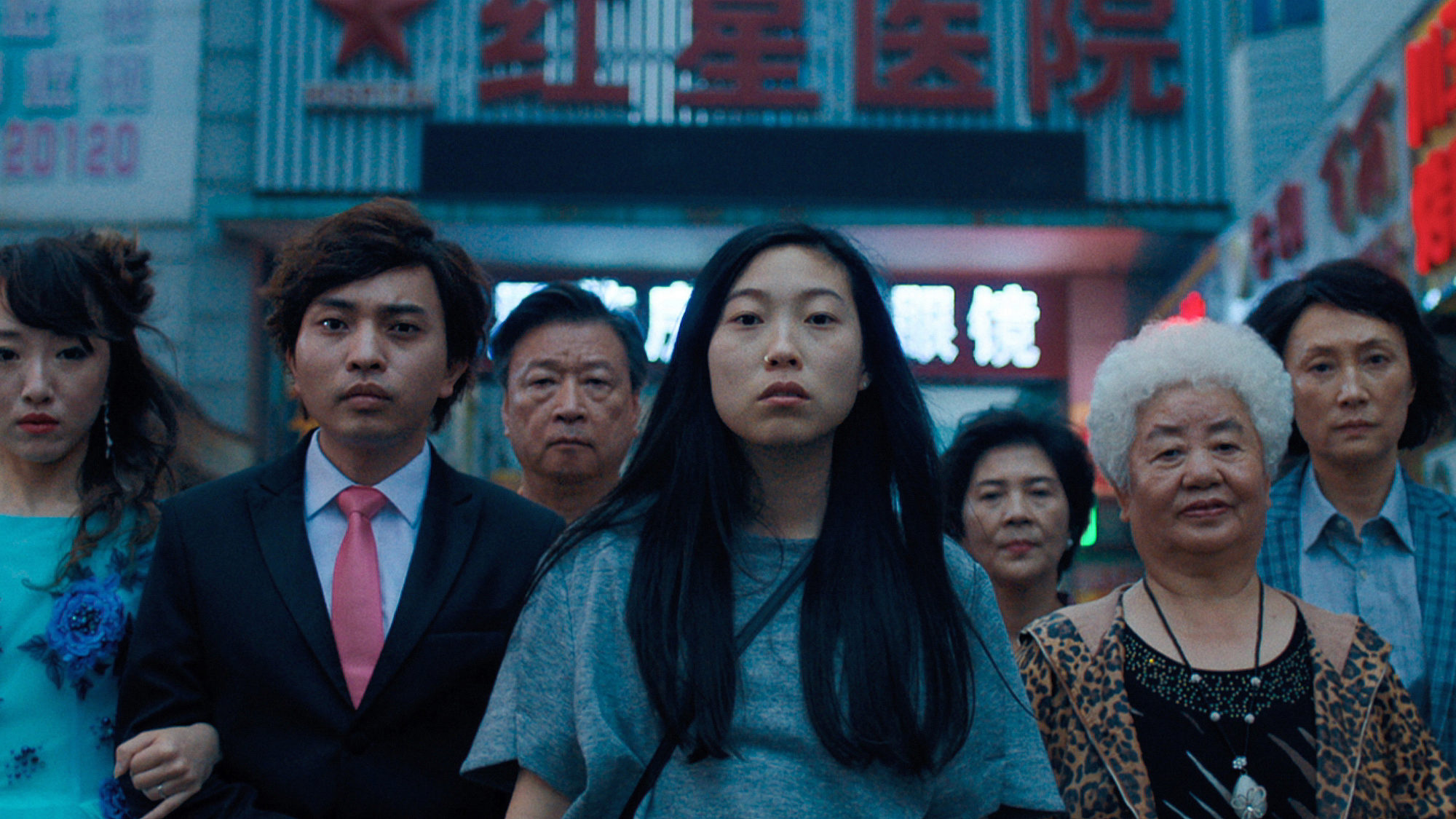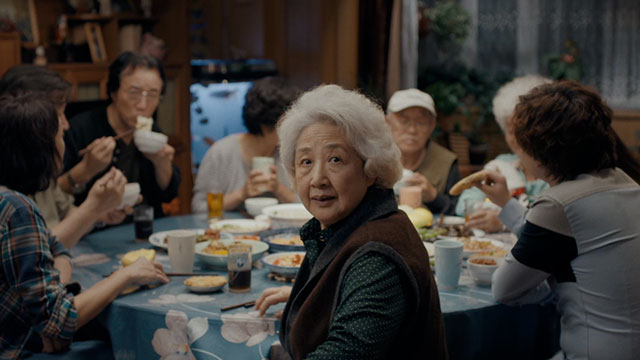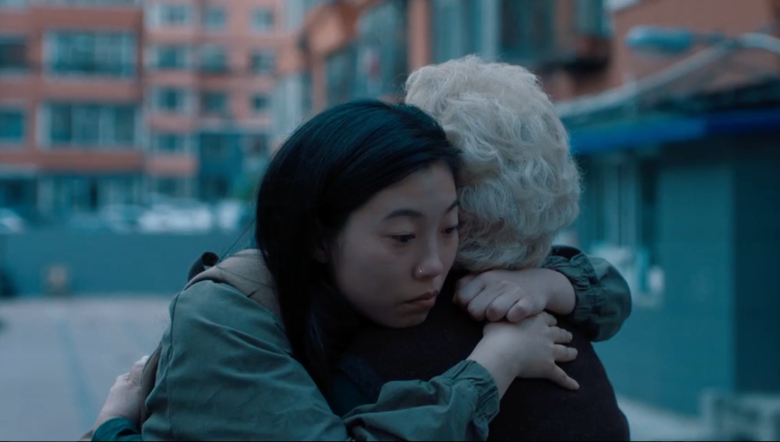
Goodbyes are hard. And they are unbearably more difficult when they are final. Billi (Akwafina), the heroine of The Farewell, finds herself in this situation when she journeys to visit her sick grandmother in China. However, there is a twist. Her grandmother hasn’t been told that she is terminally ill. Billi’s family has decided to withhold information about her test results so that she may live our her last few months in blissful ignorance of her condition. Under the cover of a wedding for Billi’s cousin, the entire extended family is invited to Changchun so that they can see their matriarch, referred to by the Mandarin term Nai Nai, one last time. Billi is devastated by the news, and mortified by her family’s lies. What if her grandmother has things she still has to do or people she wants to see before she passes? But, despite her objections, the family’s decision is final.
This central moral dilemma sets the stage for a story of cultural intersection that is equal parts insightful and entertaining, a tale that comes directly from writer/director Lulu Wang’s personal experience. As Wang explained in an episode of the podcast This American Life, her own grandmother was diagnosed with terminal lung cancer, a fact that was hidden from her by her family. This deep personal connection to the subject matter is reflected in the specificity and nuance of the script, with the cast fully conveying the messy and endearing qualities of this particular family.

We see inside-jokes that have run on for years or even decades, as well as moments of drunken revelry that find these relatives in high spirits. And we also see the crushing lows, the weight of guilt and inevitable loss challenging even the most ardent supporters of this conspiracy. The depiction of these genuine familial bonds feels true to life, as do the petty spats that break out over trivial matters. These moments are captured via wholistic compositions that reflect underlying the harmony and dissonance of the situation. The wedding reception for Billi’s cousin and his fiancé is filled with energetic ensemble staging and a series of exuberant 360 whip-pans that make it clear that despite the circumstances, there is joy to be found in this situation. However, this is contrasted by a somewhat tense dinner in which Billi’s immediate family, who have been Americans for the past 20 years, snipe back and forth regarding whether China or the US is a better country to raise a family in. These ups and downs feel authentic, wringing out the complexities of the circumstances.
This clash between Eastern and Western viewpoints is empathetically presented from the perspective of Billi. Having been born in China, but raised in the States, she finds herself at the confusing intersection between American and Chinese ideologies. The tension between these two halves is exacerbated by the momentous lie regarding her grandmother’s condition. While this deception seems wholly unjustifiable at first, Billi’s uncle (Yongbo Jiang) clarifies the position. As he puts it there is a fundamental difference between American and Chinese cultures; the latter placing the utmost importance on individualism, while the former is more dedicated to collectivism. From his perspective, hiding the truth from Nai Nai is a collective act of selflessness, where each member of the family helps carry the burden of the truth in her stead.

But despite this explanation, Billi remains wracked with guilt. Awkwafina’s performance captures the inner-strife that stems from attempting to reconcile her disparate identities. By seeing this ideological dispute from her perspective, we come to appreciate all of the ambiguities of the situation, leaving it up to the audience to determine if what we see is morally justifiable. And more broadly, the depiction of Billi’s internal struggle works as a microcosm for the experience of being a first-generation immigrant. Juggling different personas, weighing differing deeply ingrained cultural beliefs, and coming to terms with culture clashes are inherent aspects of the immigrant experience and The Farewell amplifies these underlying components with its central lie.
However, it isn’t just Billi who has difficulty carrying out the family’s difficult task. There are dozens of tense moments where these relatives almost let the secret slip as their emotions well or their dedication to the cause wavers. These sequences are equal parts saddening and gripping, suppressed grief leaking to the surface as the facade threatens to dissipate. Surprisingly, these bitter moments are often complemented by humor, the grim circumstances forgotten in bursts of absurdity such as unfortunate pre-marriage photoshoots, and Nai Nai’s hilariously judgemental outbursts. This balance of tragedy and comedy makes it feel like we are witnessing the inner-workings of a living breathing family. Cinematographer Anna Franquesa Solano also adds to this air of naturalism with chaotic mise en scènes that capture the intimacy and discord that is present in any household. Citing influences such as the Kore-Eda film Still Walking, Solano’s camera finds a similar sense of poetic beauty in the mundanity of life, making the specificities of Billi’s family feel universal.

The Farewell manages to successfully imbue this somewhat absurd tale with emotional and thematic complexity, wringing humor out of this harrowing situation without resorting to cynicism. Awkwafina’s performance as Billi is the bedrock, gracefully depicting what if feels like to be sandwiched between two cultures. Both the performances and the camerawork convey authenticity, thoroughly immersing us in the intricacies of these people’s daily lives. conveying the full weight of every crushing falsehood and the buoyant humor in every friendly jab. It’s funny, devastating, thoughtful, and one of the best films of 2019.
Rating: 4.5/5






